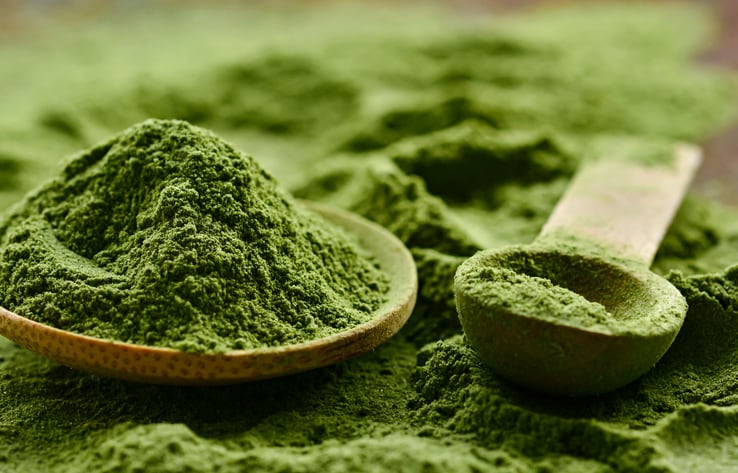Inflammatory bowel disease (IBD), encompassing Crohn’s disease (CD) and ulcerative colitis (UC), comprises a chronic lifelong disease characterised by relapsing and remitting inflammation of the gastrointestinal tract. There is growing appreciation that the gut microbiome in patients with IBD differs from healthy people, due to reduced bacterial diversity, labelled a dysbiosis.
Fibre can be classified as long chain or short chain; Long chain fibres include insoluble fibres (slowly or non‐fermentable) and soluble fibres (moderately or highly fermentable), whereas short chain fibres include oligosaccharides (fructo‐ and galacto‐), which are highly fermentable. Fermentable fibres are termed prebiotics, meaning they favour the growth of beneficial microbes and their inherent functions, with the ability to induce health benefits to the host. The recommended average intake for dietary fibre in the UK, is 30g per day.
Habitual fibre intake shapes the constitution and function of the gut microbiome, providing substrate for short chain fatty acid (SCFA) production, which is vital to enterocyte function. Prospective cohort studies have shown that a low intake of fibre impart an increased risk of IBD and fibre intake is associated with a risk of clinical flare-up in patients with established IBD.
Despite data supporting diet as a key factor in IBD flare-ups, there is a scarce evidence for diet as therapy in IBD and so patients with IBD are subject to highly variable and often contradictory dietary recommendations.
In the current study, a team of researchers from The Queen Elizabeth Hospital, in Australia, carried out a multicentre cross‐sectional study into IBD outpatients to examine whether total fibre and resistant starch intake is adequate and identify factors that may be associated with the fibre intake.
They found that patients habitually consume inadequate fibre, particularly prebiotic fibre resistant starch, concluding that the potential deleterious effects of low prebiotic intake on the gut microbiome and disease‐related outcomes in inflammatory bowel disease are unknown.
Habitual dietary fibre intake including prebiotic fibre types was measured using a validated comprehensive nutrition assessment questionnaire. Adequacy of total fibre intake was compared with Australian Nutrient Reference Values. Multiple linear regressions were performed to determine factors influencing fibre intake.
Of 92 participants, 52% had Crohn's disease, 51% were male and the mean age was 40 years. Overall, only 38% of the cohort consumed adequate total fibre (median 24 g per day). Adequate fibre consumption was significantly less common in males than females (21.3% versus 55.6%). Resistant starch intake (median 2.9 g) was significantly less than the proposed recommendations (20 g per day).
Although the study was not able to demonstrate specific factors influencing fibre intake in patients with IBD, several underlying reasons are proposed in the report.
The report states: "First, many patients with IBD are broadly advised by clinicians to avoid or reduce their fibre intake. This advice is based on historical recommendations that a ‘low residue’ diet is useful for short‐term control of gastrointestinal symptoms and to reduce stool output.
"However, in many instances, patients are not advised to re‐introduce fibre, which can result in prolonged unnecessary fibre restriction. Such advice is compounded by the Internet, which is fraught with dietary recommendations that are not supported by evidence.
"Second, more than 40% of patients with IBD suffer from concurrent irritable bowel syndrome (IBS), with concordantly high rates of dietary intolerances in the IBD cohort. Avoidance of FODMAPs may be habitually undertaken by patients with IBD to mitigate functional gastrointestinal symptoms. This is often without dietetic support, leading to unnecessary dietary restriction and reduced intakes of fibre, particularly prebiotic short chain fibres (oligosaccharides). Third, some patients with IBD have stricturing disease, for whom a low fibre diet is recommended to reduce the risk of intestinal obstruction."
The authors note that further studies are warranted to investigate the long‐term effects of inadequate fibre and prebiotic intake in the IBD cohort, including effects on overall nutrient intake, the gut microbiome and IBD‐related outcomes.
Source: Journal of Human Nutrition and Dietetics
Bryant. R. V., et al
"Habitual dietary fibre and prebiotic intake is inadequate in patients with inflammatory bowel disease: findings from a multicentre cross‐sectional study"




